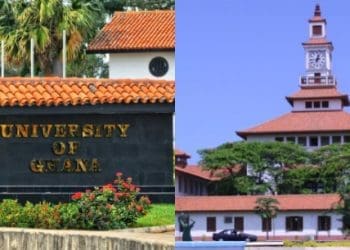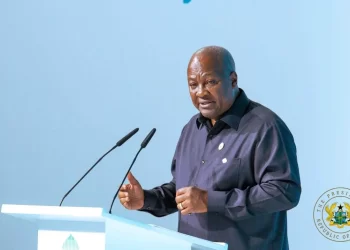The West African Regional Director of CUTS International, Appiah Kusi Adomako Esq., has called on the government to declare road crashes a public health emergency.
He cited alarming death tolls from road crashes that now surpass COVID-19 fatalities in Ghana.
Speaking at a press conference themed “The Role of Media Advocacy in Road Safety,” he painted a grim picture of the state of Ghana’s roads, describing the situation as a “silent national emergency”.
He noted that road crash fatalities are claiming far too many lives in the country, yet the crisis continues to be met with insufficient action and chronic underfunding.
“If road safety just received 20% of the funding and attention that COVID-19 did, I’m sure we could make significant progress in reducing these needless crashes,” he said.
The alarming statistics
According to Mr. Adomako, from January to June 2025 alone, Ghana recorded 7,289 road crashes involving over 12,000 vehicles, leading to 1,504 deaths and 8,300 injuries, with 1,300 pedestrian knockdowns.
“In just six months, deaths from road crashes have overtaken the total number of COVID-19 fatalities recorded over the entire pandemic,” he stated.
“Yet, unlike COVID, road safety funding is negligible.”
In June alone, 237 Ghanaians lost their lives, marking a 38.6% increase from the same period last year.
The Ashanti Region tops the list of high-fatality areas, followed by the Eastern and Greater Accra regions.
“These are not just numbers. They are breadwinners, teachers, mothers, and future leaders whose lives are being cut short daily.” ” he stressed.
Systemic failures
Mr. Adomako sharply criticised the lack of funding for the National Road Safety Authority (NRSA), despite existing laws that allocate resources from the Road Fund.
“The NRSA hasn’t received a single cedi this year,” he revealed.
He also took aim at Metropolitan, Municipal, and District Assemblies (MMDAs) for neglecting their local road safety mandates.
“Many assemblies are more focused on collecting revenue from billboards, which often block driver visibility, than ensuring pedestrian safety,” he lamented.
Policy recommendations
CUTS International outlined ten comprehensive policy recommendations aimed at curbing the alarming rate of road crashes in the country.
These include declaring road crashes a national public health emergency and amending Legislative Instrument 2180 to properly regulate the operations of commercial motorcycles and tricycles.
The organisation also called for the expansion of DVLA licensing and enforcement activities, especially in high-risk districts, alongside the deployment of intelligent traffic monitoring systems and speed limiters to deter reckless driving.
To improve safety enforcement, CUTS recommends increasing daytime police presence on highways and reviving, as well as adequately funding, the revised national road safety strategy.
The establishment of road safety units in all districts was also highlighted as a crucial step.
Furthermore, the group stressed the need to regulate the placement of billboards that obstruct driver visibility and to conduct regular alcohol and safety checks for commercial drivers.
Lastly, they urged the government to adequately resource the National Road Safety Authority (NRSA) to enable effective pre-departure inspections at major transport terminals across the country.
He expressed disappointment that even recent major policy documents like the government’s 24-hour economy plan failed to mention road safety interventions.
The Director of Planning and Programmes at the National Road Safety Authority (NRSA), Ing. Martin Owusu Afram, also stressed the urgent need for a stronger national commitment to road safety.
“Very little can be done without funding. Without it, there can be no nationwide support, and the key pillars of road safety will suffer,” he stressed.
These pillars, he explained, include education, enforcement, emergency response, and engineering.
“Engineering refers to our roots. With increasing fatalities and funding gaps, road safety education and enforcement suffer. There is a need for innovative strategies to reach our people,” he said.
Ing. Afram further called for collaborative enforcement and the empowerment of local governments to support road safety.
However, he stressed that without proper financial backing, progress remains limited.













